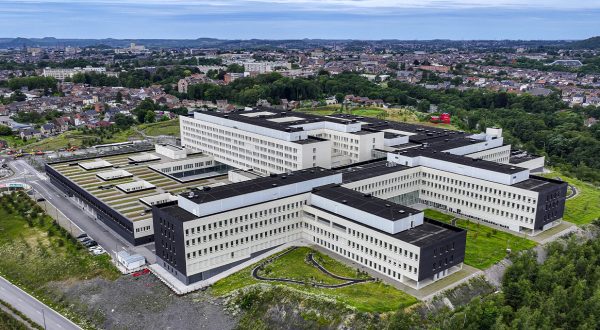Since the French government announced measures in favour of third places in June 2019, what kind of an approach have businesses been taking to them? To what extent do third places promote new working practices? Patrick Levy-Waitz, president of the Travailler autrement foundation, whose report entitled “Mission Coworking : Territoires, Travail, Numérique” (Operation coworking: communities, work, digital technology) inspired public authorities, assesses the situation.![]()
In a report submitted in September 2018, you identified 1,800 third places in France with a variety of functions: coworking space, makerspace, hackerspace, fab labs, living labs, etc. What are the main challenges involved in the development of these facilities?
P.L.-W. Property is often seen as an issue affecting the third-place phenomenon, but that’s not always the central concern. The first challenge is cultural adaptation. It’s essential that the various types of stakeholders that make up third-place life talk to each other, understand each other, and act together. I’m referring to project sponsors, local authorities, businesses, associations, self-employed workers, players in the property sector, and so on. The second, more common challenge is support. Third places often struggle to find a business model or achieve the critical mass needed to be able to impact the community. They also face professionalisation issues. These weak points justify appropriate state action, in other words promoting existing facilities and supporting their growth.
Speaking of state action, are you satisfied with the measures announced by the government in June 2019 following the “Operation Coworking” proposals?
P.L.-W. The unprecedented commitment shown by the government to creating a real public policy on third places is proof that all (or nearly all) of the report’s proposals have been addressed. France has set itself the goal of establishing at least 300 community third-space labs by 2022, including 150 in rural areas and medium-sized towns, and 150 in priority neighbourhoods as defined by urban policy. The budget for the initiative is €75,000 to €150,000 per lab over three years. In order to professionalise and structure the sector, a national council for third places – a real legislative and consultative body – was set up on 17 June 2019.
“The supply of third places is not always structured enough to meet the needs of companies, whatever their size”
What approach are businesses taking to these third places, which promote new working practices?
P.L.-W. Several businesses have set themselves up in third places, mainly in coworking spaces or sometimes fablabs, but this often only applies to small workforces. However, an increasing number of companies are making it possible for staff to work remotely in third places. The surge in telework in France represents a real opportunity for third places.
Is cooperation between businesses and third places essential if businesses are to accept (or anticipate) new forms of working?
P.L.-W. It’s a way to enable businesses to access new forms of working. In fact, businesses aren’t aware of third places. They see to it that staff can remain focused and productive when teleworking, but they have little interest in developing social interactions in a community environment. Furthermore, the supply of third places is not always structured enough to meet the needs of companies, whatever their size. The range of services available within each place is different, and businesses struggle to navigate their way through them. A tighter network is required. Lastly, using a third place involves additional costs – which are borne by the business or employee. Nevertheless, there is general agreement that working in third places enables both staff and companies, whether big or small, to adopt new ways of organising work, to innovate, and to think out of the box.
Are third places a prerequisite for the new work revolution or is it already well under way in businesses?
P.L.-W. A new work revolution is already under way in businesses and even outside of business life. The relationship French employees have with their work and with their company is undergoing unprecedented change, and new forms of employment are emerging. Regardless of whether these are imposed or chosen, they bring about more freedom for individuals and more flexibility for companies. So, it’s not a temporary change or short-term development, but a powerful and lasting trend. The labour market and business world as a whole is reshaping its own image. While third places may not be the cornerstone of this revolution, they are nevertheless involved in these transformations. And I’m convinced that promising initiatives, new business processes, and lasting growth will emerge from these new ways of working and collaborating.
14/11/2019





